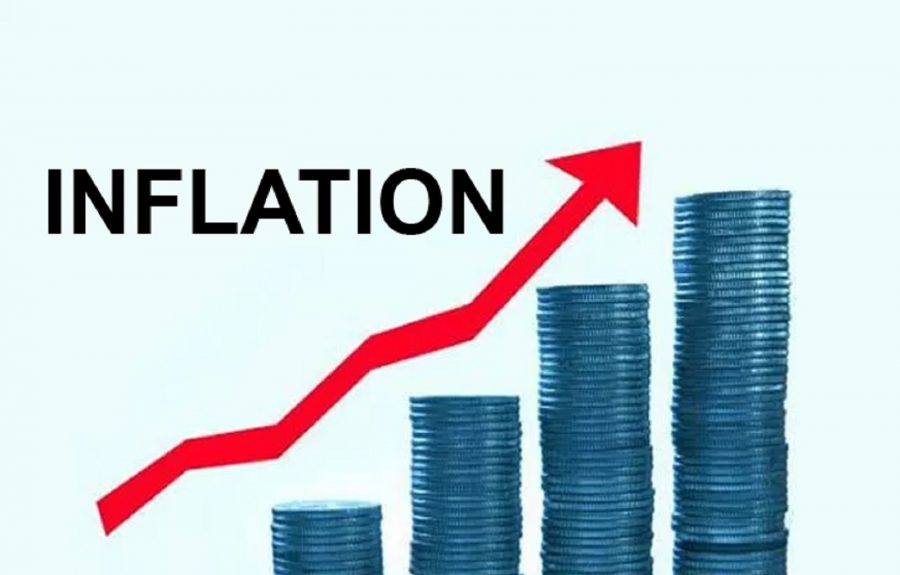

The National Bureau of Statistics (NBS) has declared that Nigeria’s inflation rate rose to 29.9 per cent in January 2024.
The NBS said the Consumer Price Index (CPI), which measures the rate of change in prices of goods and services, rose to 29.9 per cent in January 2024, up from 28.92 per cent in December 2023.
It made this known via its CPI and Inflation Report for January released on Thursday, February 15, 2024.
According to the bureau, the figure is 0.98 per cent points higher compared to the 28.92 per cent recorded in December 2023.
The NBS said on a year-on-year basis, the headline inflation rate was 8.08 per cent points higher compared to the rate recorded in January 2023, which was 21.82 per cent.
It said on a year-on-year basis, the headline inflation rate in January 2024 was 8.08 per cent higher than the rate recorded in January 2023 at 21.82 per cent.
It noted that on a month-on-month basis, the headline inflation rate in January 2024 was 2.64 per cent, which was 0.35 per cent higher than the rate recorded in December 2023 at 2.29 per cent.
Global food prices inflation remains high – World Bank
“This means that in January 2024, the rate of increase in the average price level is more than the rate of increase in the average price level in December 2023,” the NBS added.
The NBS said the increase in the headline index for January 2024 on a year-on-year basis and month-on-month basis was attributed to the increase in some items in the basket of goods and services at the divisional level.
It said these increases were observed in food and non-alcoholic beverages, housing, water, electricity, gas, and other fuel, clothing and footwear, and transport.
Others included furnishings, household equipment and maintenance, education, health, miscellaneous goods and services, restaurants and hotels, alcoholic beverages, tobacco and kola, recreation and culture, and communication.
The bureau said the percentage change in the average CPI for the 12 months ending in January 2024 over the average of the CPI for the previous corresponding 12-month period was 25.35 per cent.
“This indicates a 5.99 per cent increase compared to 19.36 per cent recorded in January 2023,” it stated.
UK enters recession after GDP fall
The NBS disclosed that the food inflation rate in January 2024 increased to 35.41 per cent on a year-on-year basis, which was 11.10 per cent higher compared to the rate recorded in January 2023 at 24.32 per cent.
“The rise in food inflation on a year-on-year basis is caused by increases in prices of bread and cereals, oil and fat, potatoes, yam and other tubers, fish, meat, fruit, coffee, tea, and cocoa,” the NBS said.
The bureau said on a month-on-month basis, the food inflation rate in January was 3.21 per cent, which was a 0.49 per cent increase compared to the rate recorded in December 2023 at 2.72 per cent.
It noted that the rise in food inflation on a month-on-month basis was caused by an increase in the average prices of potatoes, yams and other tubers, bread and cereals, fish, meat, tobacco, and vegetables.
The NBS said: “All items less farm produce and energy or core inflation, which excludes the prices of volatile agricultural produce and energy, stood at 23.59 per cent in January on a year-on-year basis.
“This increased by 4.71 per cent compared to 18.88 per cent recorded in January 2023.
“The exclusion of the PMS is due to the deregulation of the commodity by removal of subsidy.”
On states’ profile analysis, the NBS said in January, all items inflation rate on a year-on-year basis was highest in Kogi State at 35.79 per cent, followed by Oyo State at 34.58 per cent, and Akwa Ibom State at 33.16 per cent.
The bureau, however, said the slowest rise in headline inflation on a year-on-year basis was recorded in Borno State at 22.57 per cent, followed by Taraba State at 24.83 per cent, and Benue State at 26.64 per cent.
It disclosed that in January 2024, all items inflation rate on a month-on-month basis was highest in Ondo State at 3.79 per cent, followed by Osun State at 3.77 per cent, and Jigawa State at 3.58 per cent.
Germany overtakes Japan as third-biggest economy
“Bayelsa State at 0.45 per cent, followed by Yobe State at 1.10 per cent, and Ogun State at 1.35 per cent recorded the slowest rise in month-on-month inflation,” it added.
The bureau said on a year-on-year basis, food inflation was highest in Kogi State at 44.18 per cent, followed by Kwara State at 40.87 per cent, and Rivers State at 40.08 per cent.
“Bauchi at 28.83 per cent, followed by Adamawa at 29.80 per cent and Kano at 30.08 per cent recorded the slowest rise in food inflation on a year-on-year basis,” the NBS noted.
The NBS said on a month-on-month basis, food inflation was highest in Ondo State at 4.69 per cent, followed by Osun State at 4.59 per cent, and Edo State at 4.58 per cent.
“In Bayelsa, it was at 0.24 per cent, followed by Yobe at 0.97 per cent and Ogun at 1.44 per cent, recorded the slowest rise in inflation on a month-on-month basis,” the bureau disclosed.
The Executive Assistant to Delta State Governor Sheriff Oborevwori on Public Enlightenment (Projects and Policies),…
The Delta State Government has assured that the approved N1 billion loan for Micro, Small…
Osun State Governor Ademola Adeleke has vowed to remove from office any traditional ruler who…
Myanmar's military leadership, on Monday, March 31, 2025, declared a week of national mourning following…
Fidelity Bank Plc has reported a pre-tax profit of N385.2 billion for 2024, representing a…
President Bola Ahmed Tinubu has approved an extension of Mrs. Kemi Nanna Nandap's tenure as…
This website uses cookies.